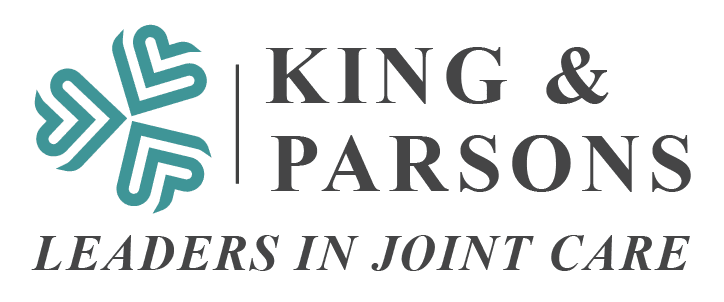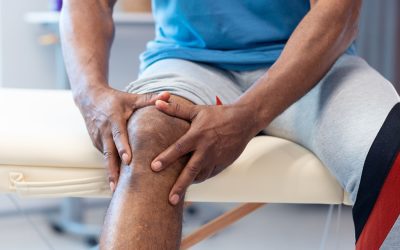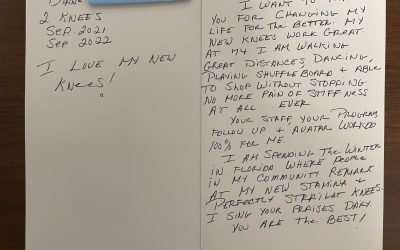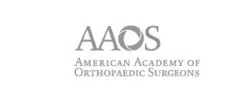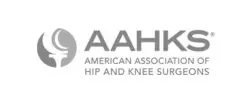The weeks leading up to your knee replacement are critical to prepare you for the surgery and the postoperative recovery. The goal during this time period is to get yourself in the best shape possible and prepare your body, your mind, your home and your support system for a successful outcome. The more preparation you do before surgery, the less risk of complications. Taking a proactive role in this process will maximize your potential for success. We urge you to own your outcome. The information that follows will provide a patient checklist of the essential steps before and after surgery that you can use as a guide to master to road to wellness.
1. Risk-Factor Modification: Getting yourself in the best shape possible before surgery will lower your risk of complications. Risk factors for infection, wound healing problems, readmissions to the hospital and poor functional outcomes have all been well-defined. Risk factors that can be modified in advance should be correct before you consider elective joint replacement. These include:
a. Obesity: Studies have documented that body mass index (BMI) greater than 40 substantially increases your risk of infection and failure of the knee replacement. Patients who are obese and in this category should pursue nutritional counseling and weight loss prior to knee replacement. If your BMI is more than 40 and you develop a postoperative infection, this is considered a preventable complication and your insurance company may refuse to pay for the necessary treatment to resolve the infection. This can be a devastating complication that can result in multiple subsequent surgeries.
b. Smoking and use of other Nicotine products: Elective knee replacement surgery should be delayed until you can stop smoking at least 6 weeks prior to your surgical date. Smoking is highly associated with infections and wound healing complications. As with obesity, complications that occur in smokers are considered preventable and may not be covered by your insurance company.
c. Diabetes Control: uncontrolled diabetes is also a risk factor for complications. The hemoglobin A1c is a measure of average blood glucose and a marker of one diabetes control. This lab value should be 7.0 or less prior to undertaking elective knee replacement. Surgery should be delayed until better diabetes control is documented.
d. Heart Disease: if you have a history of heart disease or heart failure, you should delay surgery until these conditions are optimally managed and you are cleared by a cardiologist. Heart failure is one of the leading causes of hospital readmissions after surgery. These readmissions are considered preventable by insurance companies and the cost of care may not be reimbursed.
2. Self-Optimization: the following are recommendations you should pursue to optimize your health, strength and healing capacity before and after surgery.
a. Nutrition: Good nutrition is critical for healing. Foods rich in protein and low in sugar can help boost your healing capacity. We recommend that starting 6 weeks prior to surgery, you take a multi-vitamin along with supplemental Vitamin D (at least 2000 IU daily) and supplemental Vitamin C (at least 1000mg daily). Avoid processed foods with high carbohydrate content and focus your eating on natural foods. Supplemental nutrition such as Ensure shakes or other protein shakes are encouraged to boost your nutrition.
b. Prehabilitation: structured exercise in the weeks leading up to surgery is critical to strengthen the muscles that will support the replaced knee and better enable you to recover quickly. Your surgeon will order physical therapy prior to surgery to strengthen both your upper and lower body. Studies have proven the benefits of this. If you have not been instructed to attend therapy or received a referral from your surgeon, please contact us as soon as possible so we can get this process started. Many of these exercises are things you can do on your own with proper instruction from a therapist
c. Pain Medication: using narcotic pain medication prior to surgery is not recommended. Studies have shown that patients who are on long-term narcotics have worse outcomes after surgery. Because you can develop a tolerance to these medications, achieving adequate pain control after surgery can be difficult and require higher doses of narcotics that can have detrimental side effects. Patients who have developed a narcotic tolerance also experience more pain after surgery as your nerves are “primed” for pain. Inadequate pain control can result in failure to achieve range of motion and functional goals after surgery. We strongly encourage you to stop all narcotic pain medications 6 weeks prior to surgery. If you work with a pain management specialist, you should pursue a gradual weaning process. The importance of this cannot be understated.
3. Medical, Dental and Specialty Clearance
a. Preoperative Medical Clearance: Prior to surgery, you will be scheduled to see your primary care physician to make sure you are sufficiently healthy to undergo surgery. This will include routine lab monitoring. Your physician may recommend further testing if necessary to evaluate certain heart or lung conditions. Ideally, this visit should occur several weeks prior to surgery so that any medical issues can be addressed in time for surgery. Surgery may need to be delayed if you have risk factors that need to be managed first.
b. Anesthesiology Consult: you will be scheduled to meet with the anesthesiology team prior to surgery as well so they can review any pertinent medical problems that may affect which type of anesthesia is best for you. Make sure to have an updated list of all of your current medications and allergies available for this visit.
c. Specialty Medical Clearance: You may be required to meet with a medical specialist such as a cardiologist or vascular surgeon prior to surgery if you have significant heart disease or vascular problems. These specialists may require further testing to evaluate any condition that may pose a risk for complications from the joint replacement. Some patients are already in the care of these specialists in which case a routine follow-up may be scheduled.
d. Dental Clearance: if you have active dental problems such as tooth decay, cavities, gum disease, a tooth abscess or any other substantial dental issues, you need to see a dentist and have these problems resolved prior to surgery. Dental disease can cause infections after joint replacement and elective knee surgery should be delayed until any active dental issues are resolved.
e. Preoperative Orthopedic Visit: you will return to see your surgeon usually 5-14 days prior to surgery to review all pertinent clearance information any specific medical recommendations. Your lab work will be reviewed and your risks for surgery evaluated and discussed. You will provide written consent for surgery at this visit. Please come with a list of questions. We also recommend that a spouse, family member or friend attend this visit with you as a second set of eyes and ears.
4. Preoperative Home Preparation: Getting your home ready is as important as getting your body prepared for surgery. This includes enlisting help from family and friends who can provide a safety and resource net during your recovery.
5. Discharge Disposition: The majority of patients who undergo total knee replacement can go directly home after surgery and do not need to go to a rehabilitation facility or skilled nursing facility. Social Services at the hospital can arrange for visiting nurses and therapists to come into your home upon discharge and work with you on recovery and rehabilitation. Outcomes studies have shown that going directly home after surgery correlated with fewer complications including infections and hospital readmissions. Many rehabilitation centers also care for patients with chronic illness who are sick rather than well. This environment can not only subject you to the health risk of their sickness but also to the emotional burden of being around sick people when you are on the road to wellness. Exercises before surgery and home and support system preparation can help you succeed in going directly home.
6. Length of Hospital Stay:
a. Going Home: There is no mandatory length of stay in the hospital after knee replacement. In general patients stay anywhere between 1 and 3 days, but many patients are actually able to leave the same day with proper preparation. The criteria for going home include: 1) you are comfortable on oral pain medications; 2) you are holding down food and water; 3) your bladder is properly working; 4) you are medically stable; and 5) physical therapy has cleared you as safe to leave. The latter means that you can get in and out of bed independently, off the toilet by yourself and walk 100 feet unassisted with a walker. You will feel better in the comfort of your home environment and we encourage patients to return home earlier than later to get back to a normal routine.
Studies have shown that patients who go home early actually have fewer complications than those who stay in the hospital longer and are less likely to return to the Emergency Department or be readmitted to the hospital. One thing to consider is that you have pain before the surgery and are managing okay at home. After surgery is really not much different in that you will still have some pain. The message is that technically you should be able to manage at home with some help and planning
b. Going to a Rehabilitation or Skilled Nursing Facility: Some facilities require a mandatory 3-day length of stay while others do not. The Case Manager at the hospital can help arrange the timing and method of transfer from the hospital. Once at the rehabilitation center, we encourage you to work aggressively to graduate to home as soon as you can. Prolonged stays in these facilities have been associated with an increased rate of complications including infections and readmissions to the hospital.
Some patients are under the impression that going to an inpatient rehabilitation facility is mandatory after joint replacement. This is simply not true and we encourage you through planning and preparation to go directly home if at all possible.
7. Postoperative Care
a. Physical Therapy: Daily exercise is essential after joint replacement to preserve and recover range of motion and strength. If you go directly home, visiting therapists will typically come to you at the beginning until you are better able to get around. However, we strongly encourage you to get to outpatient physical therapy as soon as you can. This may require that you make arrangements for friends or family to drive you for a few weeks until you gain enough function with the leg to drive yourself (3-6 weeks for most patients). Outpatient therapy generally progresses for 2-3 months with transition to a home program.
b. Dressing Care: The incision should remain clean and dry for about 5 days after surgery after which regular showers are fine. You should not submerse the incision underwater for about 3 weeks to ensure adequate healing. If there is no drainage of the dressing it can be left off after 7 days. If there is any drainage that persists, keep the incision covered with a clean dressing and contact the office for instructions.
To review the Total Joint Replacement Booklet, click here.
